- Home
- Jude Deveraux
Holly Page 3
Holly Read online
Page 3
“Blackmail,” Holly had muttered more than once after her stepsister had dumped yet another unpleasant task on her.
One of Holly’s jobs was to go to the house her parents had rented before her father’s heart attack and oversee the movers. Dutifully, she had left her studies to go to an atrocious house in the Smokey Mountains to pack everything up. When she saw the pink and white house, with its matching boathouse, she was appalled. To her, any house built after 1840 wasn’t worth living in.
So now she was in the little resort area around Lake Winona and waiting for the movers to show up. Everything in the house except for one bed had been boxed or crated and all that was needed now was to put it all on the truck. But the truck had broken down somewhere and they’d called to tell her they would be late, but that they’d be there for sure by 3:00 P.M.
Now, at noon, Holly was in the little general store near the house and trying to decide what to buy for dinner. She could get lunch at the little diner at the front of the store, but she’d cook dinner. She had a jar of pasta sauce in each hand and was trying to decide between the two when she looked over the counter into the dark blue eyes of an extraordinarily handsome man. He had black hair that swept across his forehead, rather like Superman’s, and a full-lipped mouth set over a cleft chin.
“Oh!” Holly said, then ducked down to grab the jar of sauce she’d nearly dropped. When she stood up again, the man was gone. Turning, she saw him walk toward the glass doors. He was tall, lean, broad-shouldered, slim-hipped.
On the other hand, he had on paint-spattered old blue jeans and a torn T-shirt that said TRUCKERS LIVE IN HEAVEN. He’s from the other side of the lake, she thought. The people who lived in the “real” houses.
She put the jars of pasta sauce back on the shelf and decided she’d grill some shrimp instead. Maybe she should go into town and get a bottle of wine or two. Just because she was alone was no reason to live on jarred pasta sauce, she told herself.
She took a seat at one of the three tables at the end of the store, and waited while the woman at the cash register finished with the customers before she took Holly’s order. While she waited, she looked out the window. “He” was there, the beautiful man she’d just seen. There were several people in the graveled parking lot and three big motorcycles. “Hogs,” she thought. That’s what the big motorcycles were called and the women, with their over-bleached hair and sleeveless leather vests, were “biker chicks.” At least she thought those were the correct terms. With her past, she was more likely to know the name of the Queen of Lanconia’s best friend (Dolly) than motorcycle slang.
The woman at the register was still busy with customers so Holly kept watching the scene outside. The man she’d seen—who she’d nicknamed “Heaven” because of his shirt—didn’t seem to know the others in the group. He had a bag of groceries and seemed to want to be on his way, but the bikers kept blocking him.
Why? she wondered. As the big-bellied bikers talked to the man, the two women circled behind him, looking him up and down, then laughing and nudging each other. Holly smiled to herself. If she were with them, she’d be laughing, too. He was a gorgeous man!
“Honey, you don’t want anything to do with the likes of him.”
Startled, Holly looked up at the waitress. “I, uh…” she began, unsure of what to say.
“You’re Ambassador Latham’s daughter, right?”
Holly nodded. She was used to people knowing “who” she was.
“He’s good to look at, but he’s a friend of Leon Basham’s, so you don’t want to get involved. Besides, a girl as pretty as you are doesn’t need his kind.”
“I wasn’t—I don’t—” Holly said, frowning, but then couldn’t resist asking, “Who’s Leon Basham?”
“A thief, a liar, and a cheat,” the waitress said. “He’s one of those truck racers. They have these big, ugly trucks that they race up hills on the weekends. They take the things all over the country to race them.”
“That doesn’t sound so bad,” Holly said. She couldn’t stop glancing at the man. There was a way he carried himself, the way his shoulders stood back at attention, the way he looked the other people in the eyes, that intrigued her.
“Leon’s different. He robbed half a dozen places in a fifty-mile radius of here before he got caught. He did odd jobs around the area to make enough to live on, but it wasn’t enough to pay for that truck.”
“What does this guy Leon have to do with him?” Holly nodded toward the scene outside. Now it looked as though the men were trying to get “Heaven” to ride one of their motorcycles.
“He’s staying in Leon’s place. You can’t call that shack a house.”
“Yeah, but he’s got that barn,” said a man who walked past them.
Holly saw the woman sneer and could tell that she hated her employer. He was dressed like the locals, in T-shirt and jeans, but the waitress was dressed like Holly: khaki trousers, cotton knit shirt with a collar, and a striped belt. Holly would have thought the woman was a college student with a summer job, except that she was probably in her early forties.
“My husband thinks it’s noble to dedicate your life to a truck,” she said in a tone of disgust.
Holly was just thinking that the two of them were certainly mismatched as a couple when their attention was caught by what was happening outside. One of the women took the groceries from Heaven, and the man put one long leg over a huge motorcycle.
The waitress put her hand on the table as she looked out the window. “It’s a trick. It’s a test. That machine is souped-up, so if he touches the gas petal he’ll go flying off the back. They know he’s living in Leon’s house, so they want to see if he’s worthy of having a key to the barn.”
“What’s so important about the barn?” Holly asked, never taking her eyes off the man. Was he about to be thrown into the gravel? Would he land on his beautiful face? On the other hand, maybe she’d have to administer CPR to him.
One of the biker men started to explain the controls, but Heaven pushed his hand away.
“He seems to know what he’s doing,” Holly said.
“He’d have to if Leon let him have a key,” the woman’s husband said. He’d moved to stand beside his wife, who turned on him.
“You know that Leon’s in jail. Carl probably gave the man a key and Leon doesn’t even know he has it.”
“Carl’s not stupid. He knows Leon would kill him if he did that.”
“Over a key to a barn?” Holly asked.
“Yes!” the man and woman said in unison.
The three of them turned back to watch the man on the motorcycle.
“Five he falls,” the woman said.
“Ten he makes it,” Holly said before the man could speak. She didn’t see the waitress frown at the back of her head.
As the bikers stood back, smiles on their faces, Heaven kick-started the machine—no electric ignition—and seconds later left the parking lot in a blaze of flying gravel, then hit the pavement at full speed.
For a moment the bikers looked chagrined, but as the seconds passed, they seemed to worry that he’d never return with the bike. If he was the thieving Leon’s friend, had he stolen the motorcycle?
Several long minutes later, the man returned from a different direction and, again in a flurry of gravel, stopped the bike exactly where he’d taken off. Calmly, he dismounted and took his groceries from the woman who was still holding them.
“You owe her ten bucks,” the man said to his wife, “and get her something to eat.” He sauntered away, obviously pleased.
As the woman removed a ten-dollar bill from her apron, Holly said, “You don’t have to pay me. It was all in fun.”
“I pay my debts,” she said tersely, and Holly knew she was angry at her husband. “Now, what can I get you? And before you ask, we have no pasta salad—or any kind of salad to speak of.” Her voice was rising so her husband could hear. “All we have is pork. If we serve it, it has pork in it or on it. Even the ch
icken is fried in half bacon grease.”
“A sandwich?” Holly said meekly, not wanting to be part of a domestic quarrel.
“I suggest a club sandwich,” the waitress said loudly. “Even though it has ham and bacon on it.”
“Okay,” Holly said. “And a glass of unsweetened tea.”
“Hear that, Ralph?” she yelled. “Here’s one of the city people who does not want half a pound of sugar in her drink.”
Holly was relieved when the waitress went away and she again looked at her watch. She’d planned to stay another night after the truck took the furniture away, but maybe she wouldn’t. Maybe she’d leave this evening.
When the waitress brought her sandwich and tea, Holly willed her to go away, but she stood there until Holly looked up at her.
“Look,” the woman said softly, then slid into the booth across the table. “I’m sorry for that outburst, sorry you were involved in it, but you remind me of myself at your age. You wouldn’t think so to look at me now, but I used to look a lot like you.” Leaning forward she glared at Holly. “And my husband looked a lot like that man you were lusting over.”
“I wasn’t—” Holly began, but decided to take a bite of sandwich instead of finishing the sentence.
“They’re sometimes gorgeous when they’re young.”
“They?” Holly asked.
“You know, these local boys. Boys who are driving pickups by the time they’re eleven; boys whose dads give them rifles for their ninth birthdays; boys who’ve never eaten anything that hasn’t bedded down with a pig.”
“Bedded…? Oh,” Holly said. Those boys. Forbidden boys. Boys who weren’t the “right sort.” Boys who grew up to be men like the one her stepmother had first married.
“I was like you and I fell in love with a beautiful young man who made love to me on the seat of his pickup. He told me he’d like to give me the moon for a mirror.”
“That sounds sweet,” Holly said.
“Yeah, and look where it got me.” She gestured around the little grocery. Holly knew that the people on “her side” of the lake never ate at the diner. “The cholesterol content of the food would kill you in thirty seconds flat,” her stepsister had said. It was true that Holly’s club sandwich had about a quarter of a cup of mayonnaise on it and at least four slices of bacon and three slices of ham. It was delicious, but Holly figured she’d gain a pound from this one meal.
“So why don’t you get out?” Holly said before she thought. She’d always been a practical person. Yeah, it had hurt that the boy she wanted didn’t want her, but life went on. And, now, wasn’t she doing something about it?
“And give my family the satisfaction?” the waitress said. “I’d have to hear everyone, even to third cousins, say, ‘I told you so.’ ” She stood up. “So now I have to watch my sister drive up in her Mercedes, and I have to pretend I’m the happiest person on earth and that I don’t hate every minute of my life.”
Holly didn’t want to hear that anyone anywhere was miserable. She didn’t know what to say. After all, all she’d done was look at a handsome man with muscles bulging out of his T-shirt.
The waitress hovered over the table. “You’re a nice girl so I don’t want to see you get mixed up with a guy who’s friends with Leon Basham.”
“I won’t,” Holly said, but the woman kept standing there, as though waiting for Holly to say more, so she lied. “Besides, I’m engaged to be married. As soon as the movers leave, I’m going to him.” When the woman still didn’t leave, Holly said, “He’s from an old family. His ancestors signed the Declaration of Independence.”
“Any money?”
“Loads,” Holly said, swallowing the lie.
The woman nodded seriously. “Just stay away from that side of the lake and those old houses. Revolution or not, what’s in those houses is dangerous to girls like you.”
“Revolution?” Holly asked quickly. “What revolution?”
“Nothing,” the woman snapped, looking at Holly’s wide eyes.
As her husband came by, he said over his shoulder, “Those old houses on this side of the lake were probably built before the American Revolutionary War. The North Carolina preservation people are trying to get them moved off the land because they’re scheduled for demolition. Gonna build more of those pink houses in there.” He said the last with a contemptuous look at his wife.
“Pre-Revolution?” Holly whispered, her mind whirling. “How can that be?”
“Deserters from the war,” the woman said, shrugging. “Maybe English, maybe American, nobody knows for sure. The land was sold to a developer over a year ago, but somebody from the preservation society came out here and said the houses couldn’t be destroyed. There was a lot about it in the local paper, and it’s an on-going war.”
“Who’s winning?”
“It’s a standoff. Believe it or not, Leon Basham is the big holdout.”
“Let me guess: Because of his barn.”
“You catch on fast.”
Holly smiled, pushed away her half-eaten sandwich, and looked at her watch. “Look at the time! I have to go. It was delicious.”
The waitress gave her a check, then went to the register to take care of some customers. Holly left a ten-dollar tip to cover the wager and maybe because the woman had tried to help Holly.
As she left the store, she remembered that she hadn’t purchased anything for dinner. She decided instead she’d drive the twenty miles to a big grocery, somewhere where no one would comment if she looked at a handsome bag boy, and buy a bottle of wine, a bag of shrimp, and some corn on the cob.
But it was as though her car had a mind of its own. She turned right instead of left, and found herself heading toward the side of the lake opposite from the house her parents had rented. She’d heard her parents’ guests comments on their view of the old houses. Some had been favorable, some not. Most of them agreed that their view was better than that of the people in the old houses. Her parents looked at a heavily forested hillside, the houses hidden in the trees and barely visible. But people on the other side looked at a bulldozed hill covered cheek to jowl with poorly built, monster-size houses painted in absurd colors.
Slowly, Holly drove her little Mini Cooper down the rutted road and studied the old houses that were tucked back under the trees. Most of them were difficult to see because mobile homes had been set in front of them, or they’d been covered with siding, or they were buried under voracious vines.
She drove to the end of the road, until she came to a big sign that said LAKESHORE ESTATES RESIDENTS ONLY and turned around.
It was, of course, impossible that a group of pre–Revolutionary War houses existed in western North Carolina. There were no European settlers in the area at that time. Or were there? She’d have to check her history on that.
So why were the locals saying these houses were that old? Legend? Stories passed from one generation to another? If so, there was probably a basis in fact.
Or perhaps some preservationist had started the rumor in an attempt to save the houses. Under similar circumstances Holly would have had no qualms about that. To save an old house from destruction, yes, she’d lie.
“Lie, cheat, and steal,” she said aloud and thought of Leon Basham and what he’d done for his truck. Maybe loving a truck so much was misplaced, but Holly understood. She liked passion; admired it. Lorrie had passionately loved his old house, just as his mother had. And this man Leon was in prison because he’d stolen for love of his truck.
Wonder if he stole Hollander tools? she thought as she parked her car under a drooping black walnut tree. She’d purposefully chosen a small car so she could get into tight places, and she’d ordered it in dark green so she could hide it more easily. “And it’s fast so you can outrun property owners with shotguns,” her stepsister had said.
Yes, it was true that Holly had an unfortunate habit of trespassing on private property to snoop through old houses. She liked to drive down curvy country lanes and
see what was hidden in the woods.
Even if her methods were illegal, she’d been successful. She’d discovered a house built in 1784, that had been buried under a cheap new façade of leaky vinyl siding. She’d bought the house from the owners and had it moved to a new location. One time she’d waded through waist-high grass to find three acres covered with rotting outbuildings from an old plantation. Holly had paid to have them moved and restored. It was easy to find young couples eager to restore and live in old houses. All they needed was the money for the materials—which Holly provided.
Now, she got out of the car, looked around, and listened. When she was satisfied that no one was near, she opened the back of her car and removed the tall, triple-layered leather boots she always carried with her. Snakes loved old houses nearly as much as she did. She got her digital camera, a bottle of water, her walking stick, and a flashlight, then set off up the hill toward a house that could barely be seen under the encroaching weeds.
As soon as she got close enough, she saw that the exterior of the house wasn’t very old: 1880 at the earliest. Cautiously, she stepped onto the porch, testing each board before putting her weight on it. The door had fallen off one hinge, which made it difficult to open. When she turned on her flashlight to examine the door’s molding and hinges, she saw it was a replacement from the 1950s, so she gave it a shove. Some of her colleagues believed in preserving everything before 1980, but Holly wasn’t one of them.
Inside, the house was in bad shape. Grapevines had taken over one side, growing through two windows like great, hairy snakes. Several floorboards had rotted through, and she could see the pale weeds growing below, inching up toward the sunlight.
She looked around the interior of the ruin, and decided she was wasting her time. Either this wasn’t one of the houses considered pre-Revolutionary, or the whole idea was a hoax. She turned to leave, but then in the back she saw a beam—a large beam, maybe from a ship. Old houses were often made from dismantled ships. But here, so far inland? Cautiously, Holly made her way toward the back of the house, stepping gingerly on the floorboards, as she kept her light fastened on the overhead beam.

 Eternity
Eternity The Temptress
The Temptress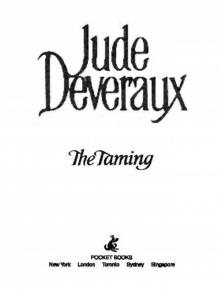 The Taming
The Taming True Love
True Love Forever...
Forever... Lavender Morning
Lavender Morning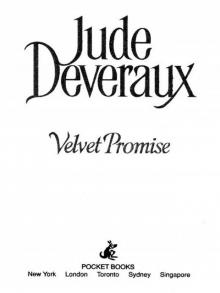 The Velvet Promise
The Velvet Promise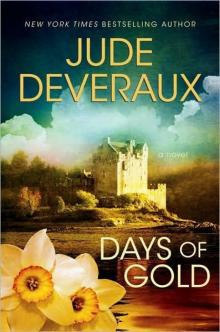 Days of Gold
Days of Gold Temptation
Temptation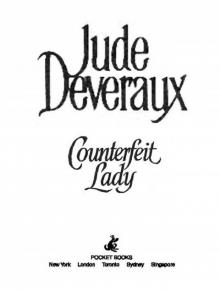 Counterfeit Lady
Counterfeit Lady Twin of Fire
Twin of Fire Remembrance
Remembrance Velvet Angel
Velvet Angel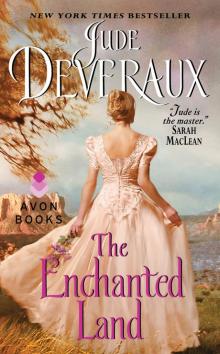 The Enchanted Land
The Enchanted Land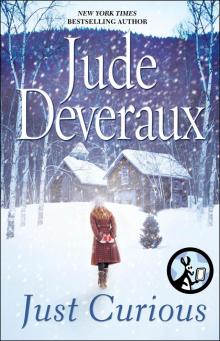 Just Curious
Just Curious Wild Orchids
Wild Orchids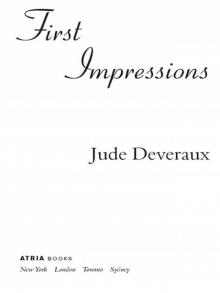 First Impressions
First Impressions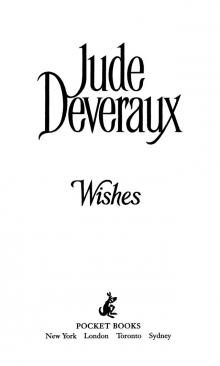 Wishes
Wishes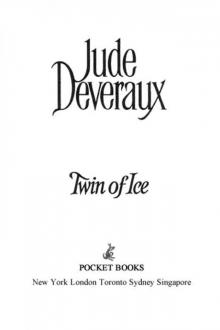 Twin of Ice
Twin of Ice Ever After
Ever After An Angel for Emily
An Angel for Emily River Lady
River Lady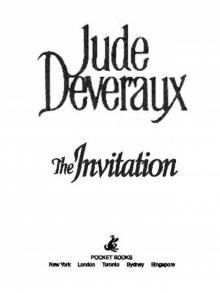 The Invitation
The Invitation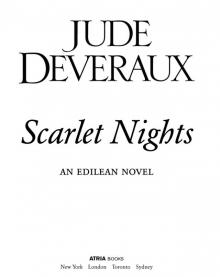 Scarlet Nights
Scarlet Nights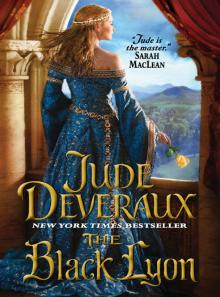 The Black Lyon
The Black Lyon High Tide
High Tide The Girl From Summer Hill
The Girl From Summer Hill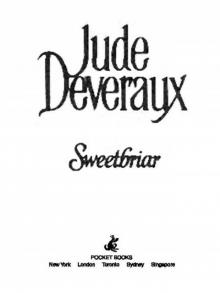 Sweetbriar
Sweetbriar As You Wish
As You Wish For All Time
For All Time Secrets
Secrets The Blessing
The Blessing Upon a Midnight Clear
Upon a Midnight Clear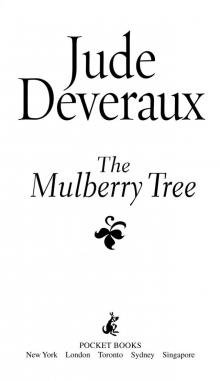 The Mulberry Tree
The Mulberry Tree The Scent of Jasmine
The Scent of Jasmine Sweet Liar
Sweet Liar Carolina Isle
Carolina Isle Holly
Holly A Knight in Shining Armor
A Knight in Shining Armor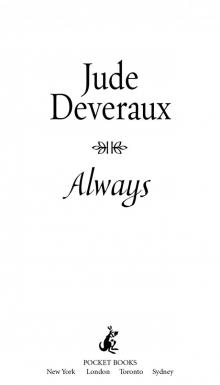 Always
Always The Duchess
The Duchess Forever and Always
Forever and Always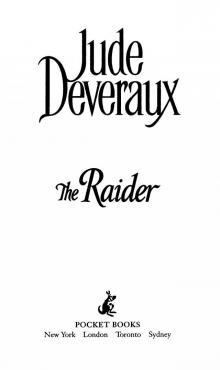 The Raider
The Raider The Conquest
The Conquest Moonlight in the Morning
Moonlight in the Morning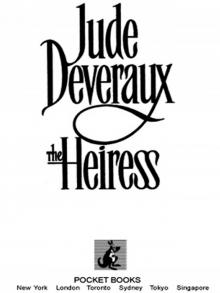 The Heiress
The Heiress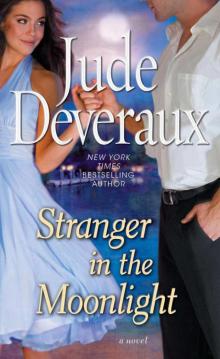 Stranger in the Moonlight
Stranger in the Moonlight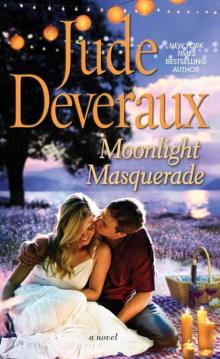 Moonlight Masquerade
Moonlight Masquerade Change of Heart
Change of Heart The Awakening
The Awakening Velvet Song
Velvet Song Someone to Love
Someone to Love The Summerhouse
The Summerhouse The Princess
The Princess Highland Velvet
Highland Velvet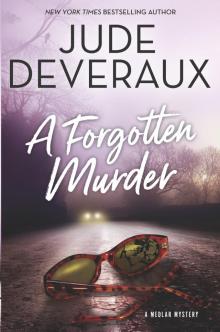 A Forgotten Murder
A Forgotten Murder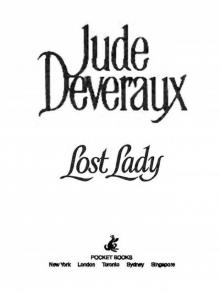 Lost Lady
Lost Lady Met Her Match
Met Her Match LEGEND
LEGEND Forever: A Novel of Good and Evil, Love and Hope
Forever: A Novel of Good and Evil, Love and Hope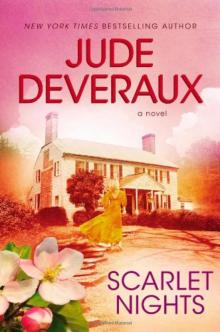 Scarlet Nights: An Edilean Novel
Scarlet Nights: An Edilean Novel